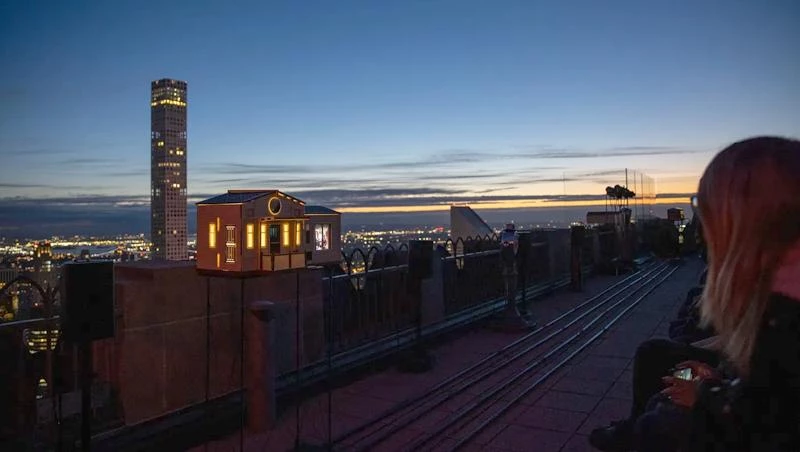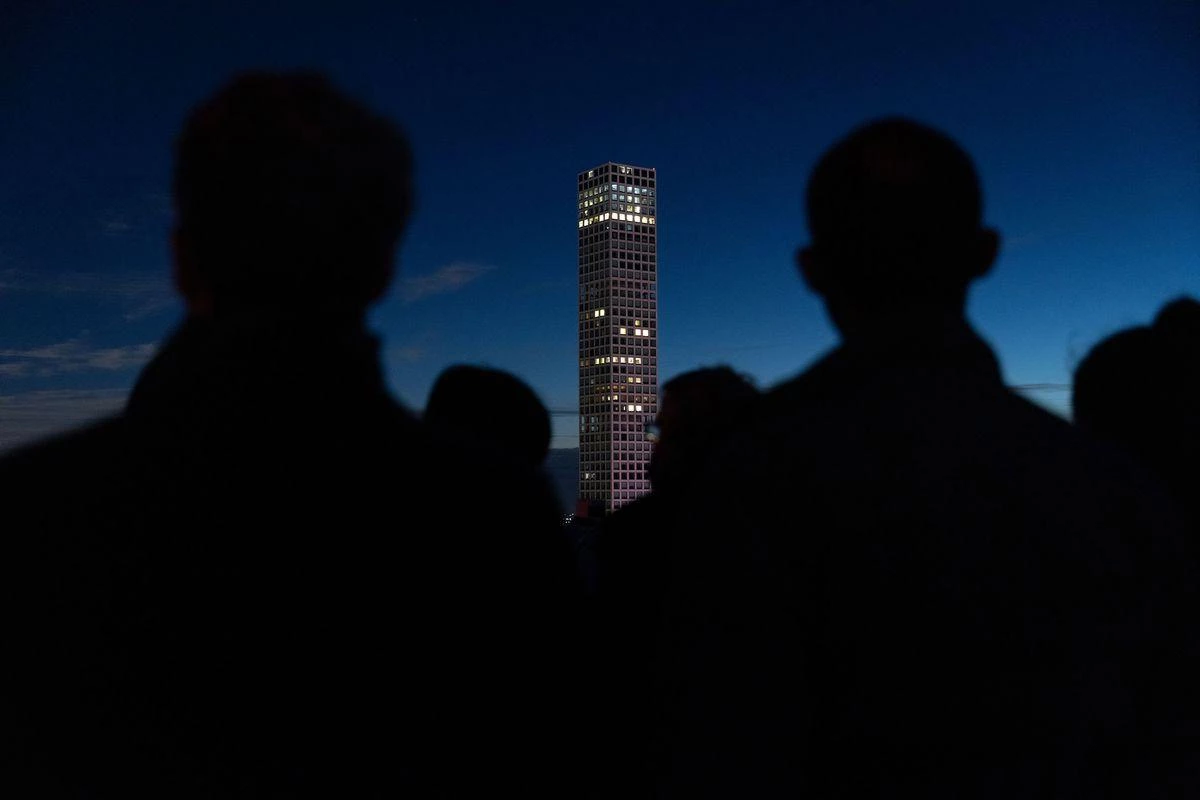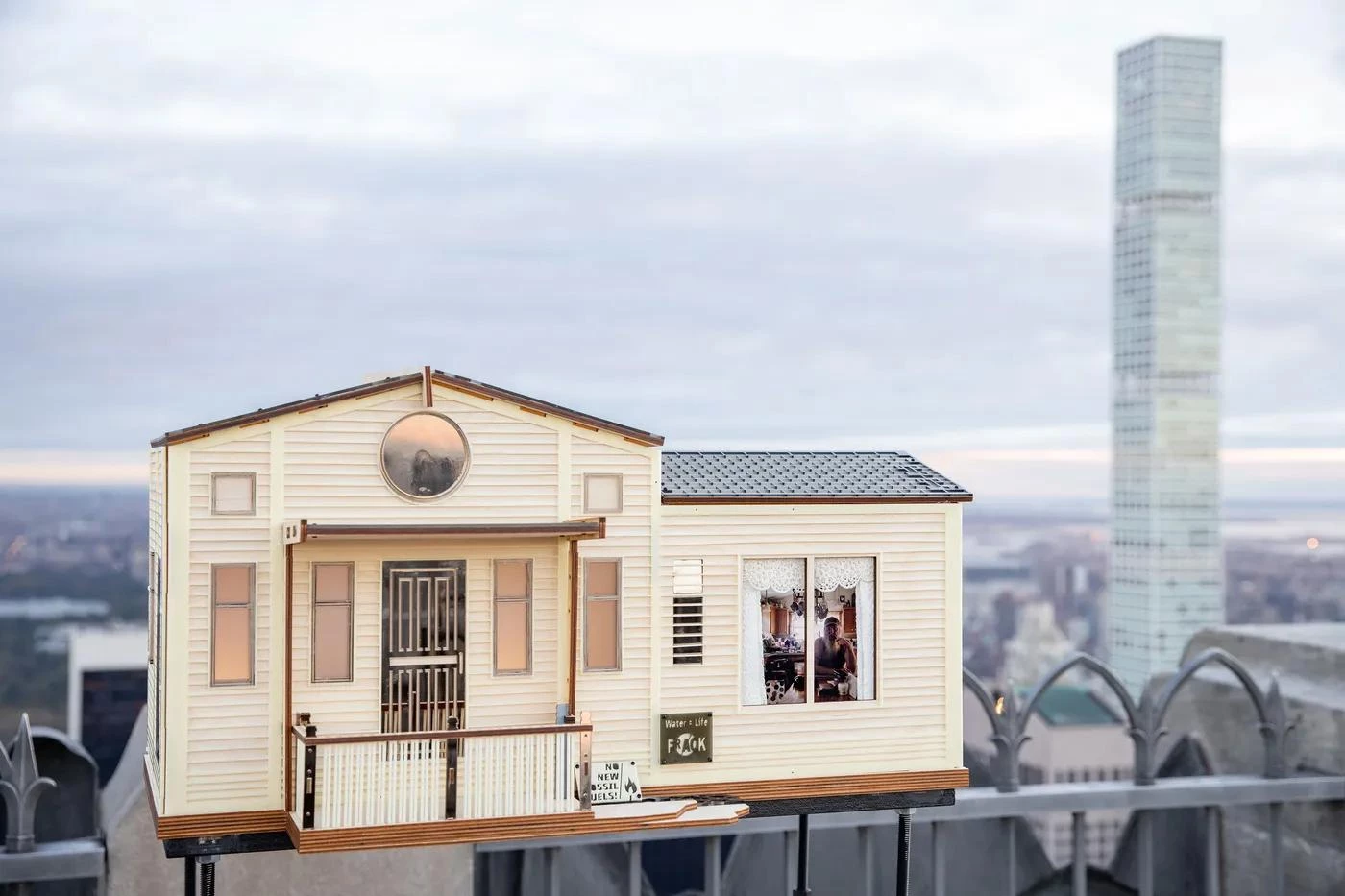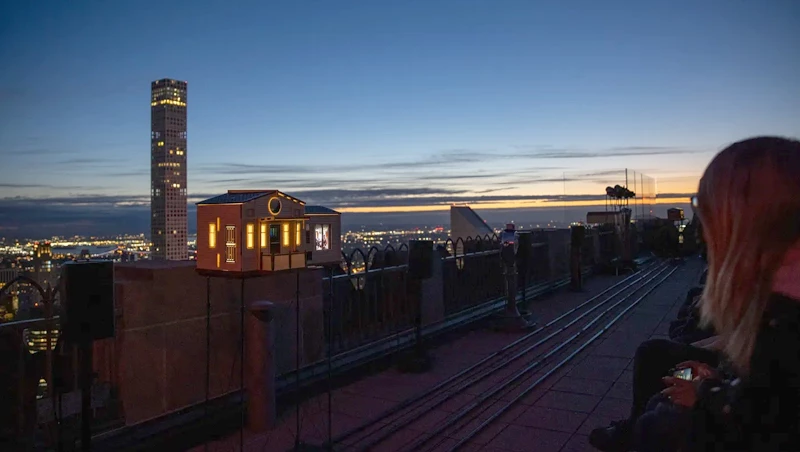
Looking northward from the Top of the Rock, Rockefeller Center’s observation deck, the skyline is defined by three supertall pencil towers, from left to right: Central Park Tower, the tallest residential building in the world at 98 stories; 53 West 53rd Street; and 432 Park Avenue. “That’s ultraclear glass, that’s ultraclear glass, that’s ultraclear glass,” says the architect Andrés Jaque, pointing at each. He’s referring to the material that allows this class of supertall towers to sell their stunning views, the environmental cost of which is the subject of his new performance, Being Silica, which runs through as part of this year’s Performa Biennial. His piece, a mix of documentary-style interviews, experimental soundscapes, colored lights, and moving architectural models, will be on view at sunrise, and 30 Rock’s view, 850 feet in the air, will serve as its spectacular backdrop.
Jaque, who is Spanish-born and New York-based, founded his studio, Office for Political Innovation, in 2003. He’s built a practice based on challenging architecture’s investment in forms of exploitation through performances, films, installations, and exhibitions. His installation about silica explores it in two of its forms: the low-iron sand that is essential to the production of ultraclear glass, and the cheap, nearly pure quartz sand that is used in the extraction of natural gas, a major energy source for New York City...
Curbed: ‘Being Silica’ Looks Hard at the Environmental Cost of Supertall Views





